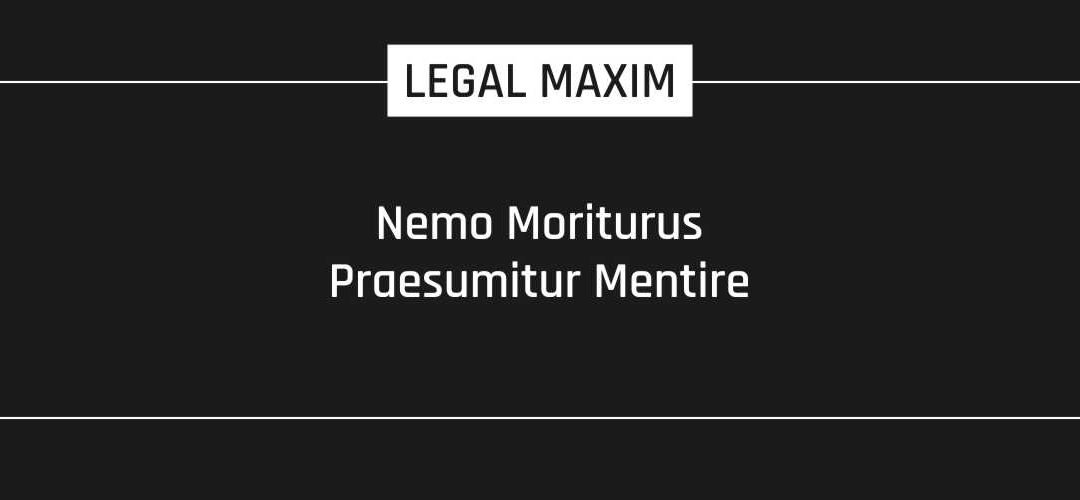Literal Meaning
No one at the point of death is presumed to lie.
Origin
Latin
Explanation
The maxim is also referred to as be a dying declaration. As per this maxim, a man will not meet his creator with a lie in his mouth. It is the philosophy in law underlying admittance in evidence of dying declaration. A dying declaration given by a person on the verge of his demise has a certain sanctity, because, at the sacred moment, a person is most reluctant to make some incorrect claims. The aura of imminent mortality is by itself an assurance of the validity of the argument rendered by the deceased regarding the reasons or conditions contributing to his demise. If considered to be true, a dying declaration will form the foundation of conviction. A Court of Evidence is not disqualified for seeking guilt from ruling upon an uncorroborated dying argument. As a piece of proof, a dying statement sits on the same basis as every other piece of evidence.
Case Laws
In Kundula Bala Subrahmanyam vs. State of A.P., the Court stated that such a statement, called the dying declaration, is relevant and admissible in evidence provided it has been made by the deceased while in a fit mental condition. The above statement of the law, by way of preamble to this judgment has been necessitated as this appeal, putting in issue acquittal of the accused respondents from a charge under Section 302/34, I.P.C. seeks reversal of the impugned judgment and invites this Court to record a finding of guilty based on the singular evidence of dying declaration made by the victim.
In Dalip Singh vs. the State of Punjab, the court held that “although a dying declaration recorded by a Police Officer during the course of the investigation is admissible under Section 32 of the Indian Evidence Act, in view of the exception provided in subsection (2) of Section 162 of the Code of Criminal Procedure, 1973, it is better to leave such dying declarations out of consideration until and unless the prosecution satisfies the court as to why it was not recorded by a Magistrate or by a Doctor.”
As observed by this Court in Munnu Raja vs. State of Madhya Pradesh the practice of the Investigating Officer himself recording a dying declaration during the course of investigation ought not to be encouraged. We do not mean to suggest that such dying declarations are always untrustworthy, but, what we want to emphasize is that better and more reliable methods of recording a dying declaration of an injured person should be taken recourse to and the one recorded by the Police Officer may be relied upon if there was no time or facility available to the prosecution for adopting any better method.
